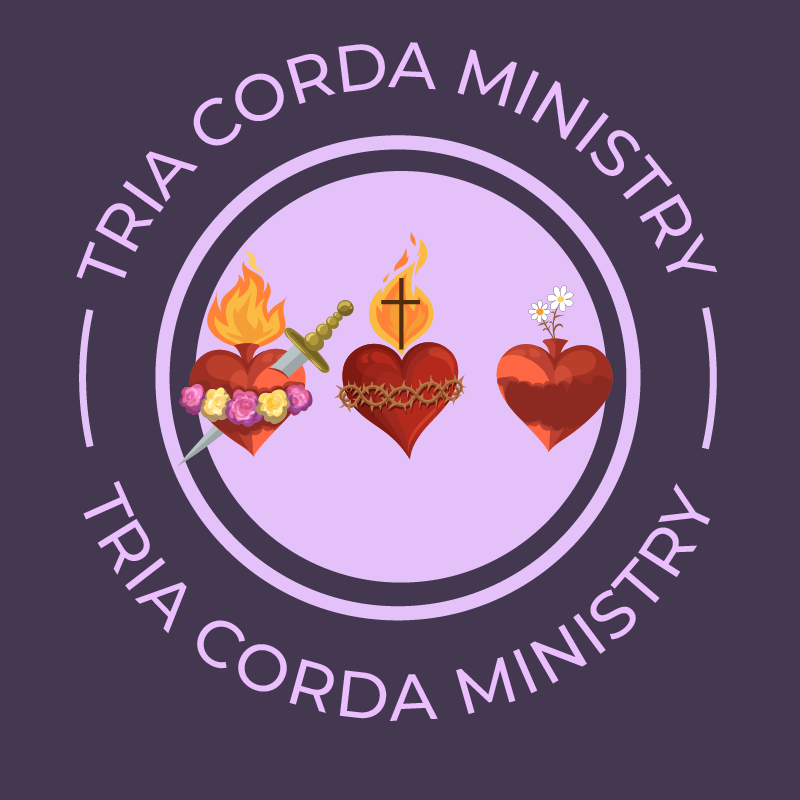The Mindful Catholic by Dr. Gregory Bottaro is a book that explains Catholic mindfulness and provides eight sets of exercises for growing in mindfulness.
In this article, we’ll discuss what Catholic mindfulness is and how it can be helpful for both resilience and healing from trauma.
This page may contain affiliate links. As an Amazon Associate I earn from qualifying purchases, at no extra cost to you. Thank you for your support of Tria Corda Ministry!
An Important Note About Mindfulness
Mindfulness has become very popular in secular culture and therapy over the past several years. This popularity is for good reason, as we’ll see below, but there is an important distinction we must make here as Catholics.
When people in the popular culture talk about mindfulness, they usually refer to Buddhist mindfulness. Mindfulness is an important part of the Buddhist faith and is a step on their path to enlightenment. In itself, this isn’t against Catholicism, but the end goal of this path to enlightenment is where we disagree.
Buddhists believe the self does not exist and that everything is one, with no diversity among beings. The goal of life is to realize this lack of diversity and enter into nothingness. In contrast, for Catholics, the end goal of our mindfulness efforts is to unite with God and focus on Him. Dr. Bottaro covers this debate in much more detail in the book.
What is Catholic Mindfulness?
From Scripture, we know the importance of our thoughts. St. Paul tells us to take our thoughts captive to obey Christ (2 Corinthians 10:5) and renew our minds (Romans 12:2). We also know that thoughts precede sin. So, becoming fully aware of our thoughts (the contents of our minds) is essential.
We also know that our minds significantly impact our functioning in every area. Our thoughts can cause bodily reactions and dramatically impact our spiritual lives and relationships.
Unfortunately, our minds tend to wander, especially in an age with ever-increasing distractions. Dr. Bottaro argues that our minds wander from the present moment because we try to figure out what’s next. We try to figure out what’s next because we doubt God. So, we need to trust God to stay present.
So, how do we take control of our minds and thoughts and stay present? Through Catholic mindfulness. In essence, mindfulness is awareness of the present moment. God is the present moment, so we can become more aware of Him by becoming fully aware of the present.
Researchers have documented the benefits of mindfulness well. They have found that mindfulness can help depression, anxiety, addictions, physical health problems, and relationships and improve creativity and productivity. Additionally, mindfulness helps us to grow in self-awareness, which is foundational for growing more and more into who God created us to be.
In the book, Dr. Bottaro describes eight sets of exercises to help people grow in mindfulness. These involve things like becoming mindful of the body and breathing, disrupting our habits so we don’t live on autopilot, and doing daily tasks without distraction.
Mindfulness and Healing
Mindfulness and Resilience
As we’ve seen before, resilience is an ability that can help people heal from trauma and bounce back from daily hassles. Many researchers have found that mindfulness can significantly improve resilience. You can learn more here.
Disrupting the Sympathetic Nervous System
The sympathetic nervous system is at the heart of the fight-or-flight response. When we perceive danger, it sets off a cascade of events to help us to face danger. These events include increased heart rate, flushed skin, muscle tension, and a narrowing of focus.
This reaction is excellent in the short term when we are facing danger. Problems can occur, however, when we get stuck in this reaction, or it becomes triggered by events that are not dangerous. The stress chemicals continue to flow, causing many health problems. This is especially common among trauma survivors.
The parasympathetic nervous system is the opposite. When we are not in a state of danger, this allows us to have open minds and calm bodies. Mindfulness helps to trigger this reaction. Thus, improving mindfulness can help trauma survivors better regulate their nervous system.
Mindfulness and Relationships
As we have seen, mindfulness helps us be present and in a state of openness to the outside world. These are great things to have in relationships so we can focus on the person in front of us.
Healing happens in relationships, so by having the ability to engage in relationships through mindfulness, we can better enter into these healing relationships.
Mindfulness and Thoughts
Cognitive-behavioral therapy is a very popular and effective form of therapy.
This therapy is based on the ABC model, which is the following:
- Antecedent: An event happens that triggers a belief
- Belief: Our interpretation of the event
- Consequences: How we respond to an interpretation
According to this model, faulty or irrational interpretations of events based on our beliefs are behind things like depression, anxiety, and more. Cognitive-behavioral therapy aims to help people become aware of their beliefs so they can begin to challenge and rewrite them.
Trauma can significantly impact people’s beliefs, as it can shake or even shatter their worldviews. Mindfulness can help trauma survivors become aware of their beliefs so they can begin to challenge their beliefs, either on their own or with a trained therapist.
Conclusion
Catholic mindfulness can be beneficial for all people, especially those who have faced trauma. It can be helpful for the healing process in multiple ways. I highly encourage you to pick up a copy of The Mindful Catholic by Dr. Gregory Bottaro, which you can do here.

